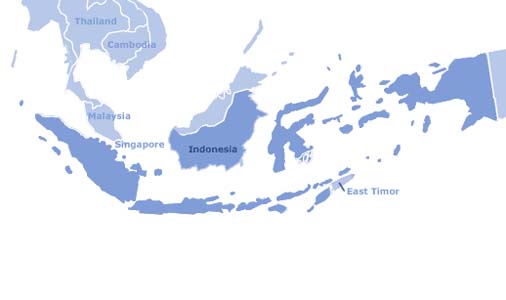Ramadan boosts conspicuous consumption in Indonesia
 Jakarta - Islam's holy month of Ramadan - a time to fast and to reflect on the needs of the poor - is turning into a period of profligacy for some in Indonesia, the most populous Muslim nation on earth.
Jakarta - Islam's holy month of Ramadan - a time to fast and to reflect on the needs of the poor - is turning into a period of profligacy for some in Indonesia, the most populous Muslim nation on earth.
Ramadan is a key part of Indonesia's culture, but growing prosperity means many people are spending their money on fine foods, expensive clothes, holidays and lavish gifts.
That has some religious leaders worried that this month of frugality is losing its relevance.
"Islam teaches us to set aside a portion of our wealth for the needy, and by fasting we hope to be able to understand their suffering," said Abdurrahman, a Muslim cleric.
These thoughts seem a long way from the sights at shopping malls in the capital Jakarta, which display Ramadan-themed decorations and show mannequins decked out in the latest Muslim fashions.
Many are packed with out-of-town visitors looking to spend their cash.
"It's the custom in my hometown for people to buy new clothes for their family members ahead of the Eid al-Fitr celebration (that marks the end of Ramadan)," said Juleha, 35.
She came with six neighbours from the coastal town of Indramayu in West Java to Jakarta's Tanah Abang market. Tanah Abang is the largest food and clothes market in South-East Asia, and Juleha said she and her friends are there to pick up bargains.
Some shopping malls are looking to attract shoppers like Juleha with signs offering discounts of as much as 70 per cent, free parking, and longer opening hours including late-night shopping.
"We're opening until later at night because that is the right time for many Muslims to go shopping after they have spent the day observing their fast and taraweeh - a special evening prayer during Ramadan," said Pipih Tjandra, the marketing manager at Taman Aggrek Mall in West Jakarta.
Smaller operators are enjoying a busy time too. Clothes trader Fitriani sells Muslim clothes at the Mangga Dua Mall, one of Jakarta's most modern centres.
He said the holy month of Ramadan is "a golden opportunity for business people like me."
"I love Ramadan. This is an excellent month to make extra profits," Fitriani told the German Press Agency dpa. "Muslims typically buy new clothes for the Eid al-Fitr celebration."
Hotels and restaurants have also jumped on the bandwagon, with high-end hotels offering menus of Middle Eastern food, and special rooms for guests celebrating Ramadan.
Observant Indonesian Muslims fast during the daylight hours, and break that fast with lavish meals after sunset. Aisah, a 50-year-old mother of three, said her sons insist on eating the finest foods at this time of year.
"My sons love to eat rendang - meat simmered in spices and coconut milk - so that's what I make for them as a reward for them fasting at Ramadan," she said.
"Every item in their meals must be extra special," explained Aisah, a devout Muslim.
That insistence on the best is shared by many Muslims in Indonesia, leading to price pressures on some items. Trade Minister Mari Elka Pangestu said price rises are inevitable, but maintains there are enough supplies of daily necessities. The minister said the government would intervene if prices rise by more than 25 per cent.
Clerics such as Abdurrahman are worried that Ramadan's religious nature is being slowly eroded by creeping commercialization. He fears the combination could rob Ramadan of its meaning and importance.
"Taken together I do see a worrying trend. Individually these things might be justifiable because everyone has the right to make a choice, but if you step back you start to see that the meaning and context of Ramadan is slowly being lost," he warned.
Another cleric, Abdul Aziz, shared those concerns and said Ramadan ought not to involve showing off and reckless consumption.
"One of the essences of fasting for every Muslim is to control their greed," Abdul Aziz told dpa. "So let us focus during this holy month on doing what is right and required. Let us do the right thing for the less fortunate." (dpa)